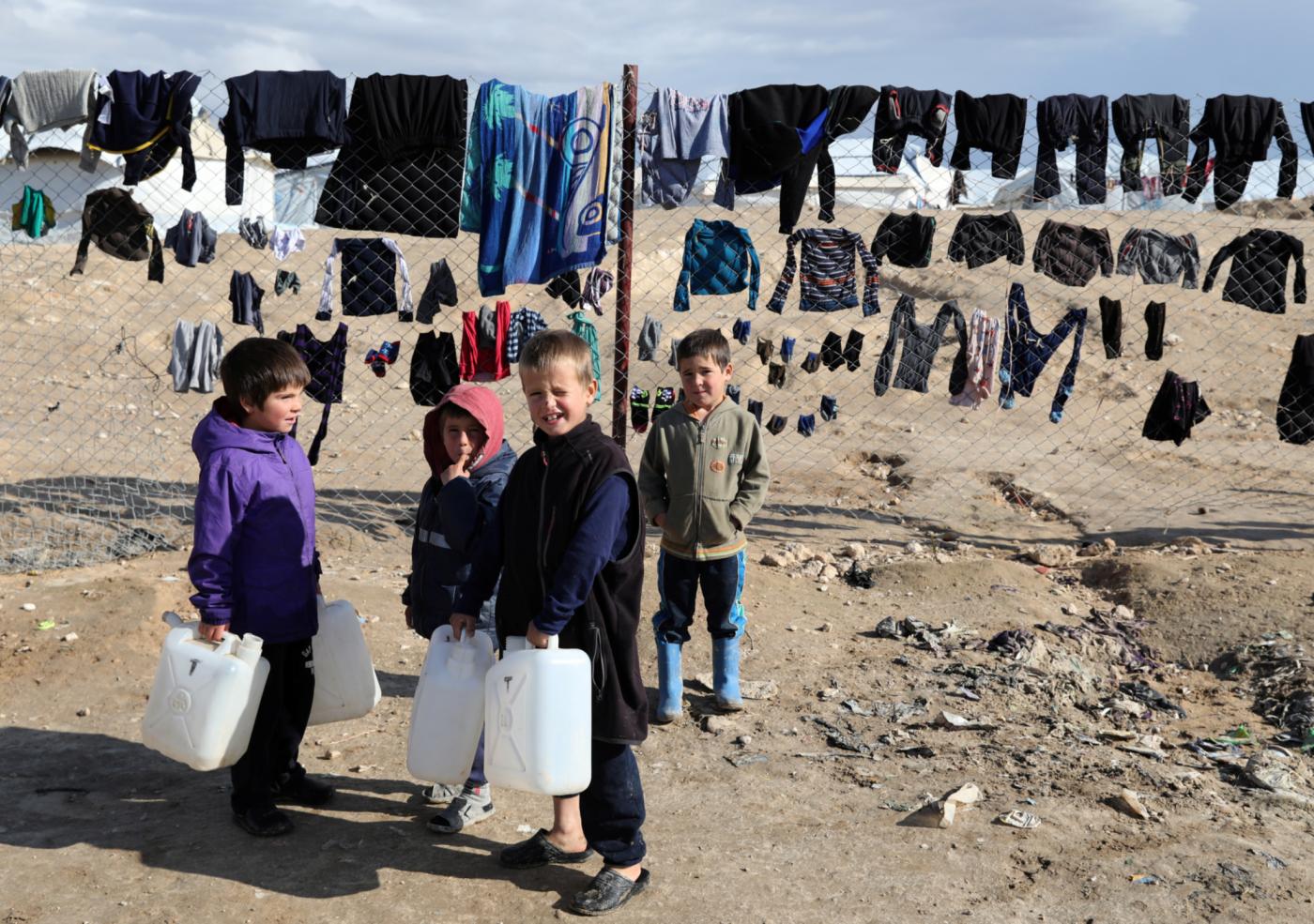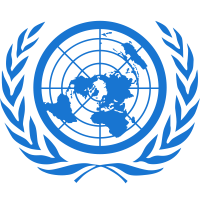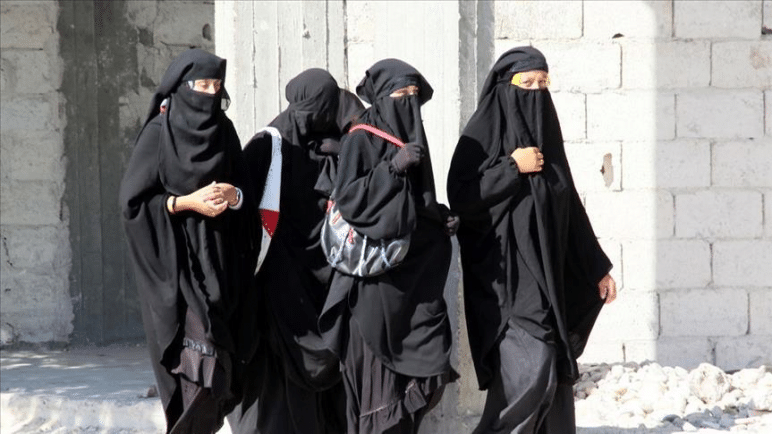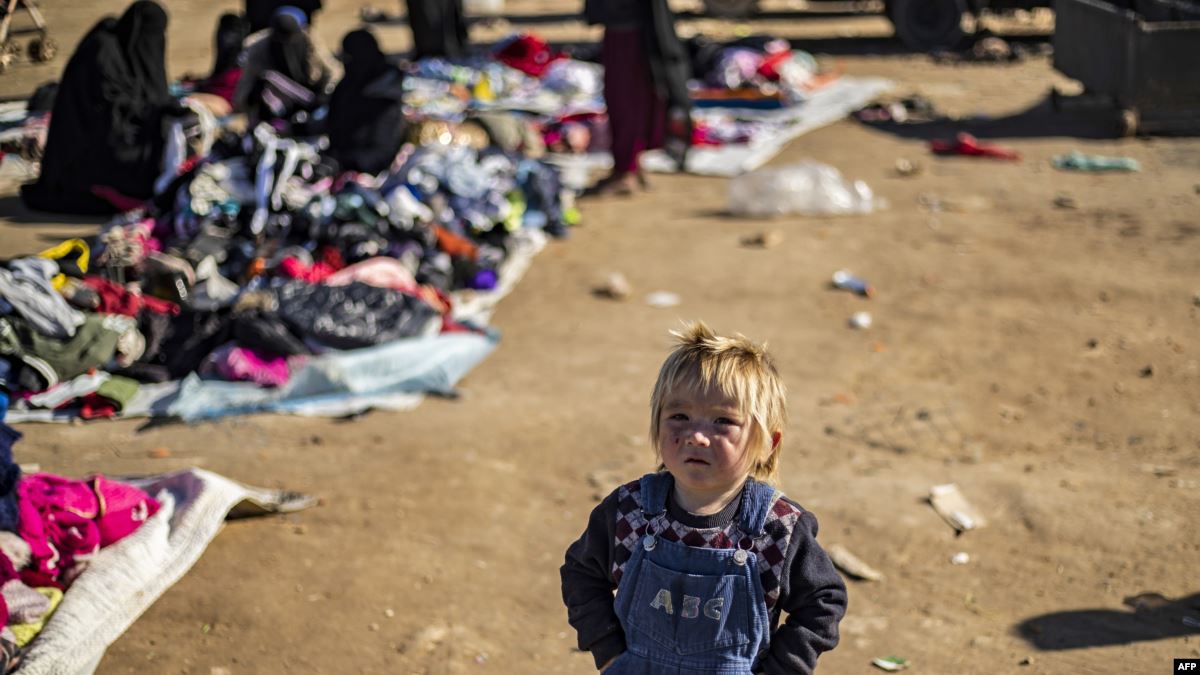فريق خبراء الأمم المتحدة يقول إن بلدان المنشأ تتحمل المسؤولية الرئيسية عن حماية مواطنيها الذين يعيشون أوضاعاً هشّة خارج أراضيها.
10 / شباط / فبراير / 2021

*مع العدالة | ترجمة: شمس الحسيني
المصدر: Middle East Eye
حثّ خبراء حقوق الإنسان التابعون للأمم المتحدة 57 دولة على إعادة مواطنيها الذين يُعتقد أنهم يقبعون في مخيمي “الهول والروج” في سورية، حيث يتعرض الآلاف لخطر العنف والاستغلال والموت.
تم احتجاز عشرات الآلاف من النساء والأطفال، معظمهم دون سن الخامسة، ممن يُزعم صلاتهم بمقاتلي تنظيم الدولة الإسلامية (داعش)، دون محاكمة عادلة، في معسكرات تديرها ميليشيا قوات سوريا الديمقراطية التي يقودها الأكراد في شمال شرق سوريا.
وكثير منهن أجنبيات سافرن إلى سورية والعراق للعيش وأطفالهن تحت ظل داعش. ومع ذلك، رفضت الغالبية العظمى من البلدان التي لديها مواطنون في المخيمات إعادة مواطنيها إلى وطنهم وتركتهم للسلطات الكردية للتعامل معهم، متذرعة بالشواغل الأمنية.

ونظراً للعدد الكبير من الدول التي تضم مواطنين في الهول والروج، دعا خبراء الأمم المتحدة إلى اتخاذ إجراءات جماعية وفورية لتجنب إلحاق ضرر لا رجعة فيه بالناس المعرضين للظروف الخطيرة في المخيمات المكتظة، حيث يعيش 64,000 معتقل ومشرّد داخلياً.
وقالوا في رسالة إلى الدول الـ57 إن “آلاف الأشخاص المحتجزين في المخيمات يتعرضون للعنف والاستغلال والإيذاء والحرمان في ظروف ومعاملة قد ترقى إلى مستوى التعذيب أو غيره من ضروب المعاملة أو العقوبة القاسية أو اللاإنسانية أو المهينة بموجب القانون الدولي، دون أن يكون تحت تصرفهم أي سبيل انتصاف فعال”.

- وقد توفي بالفعل عدد غير معروف بسبب ظروف احتجازهم”.
ومنذ بداية العام، أُبلغ عن زيادة في العنف في المخيمات، بما في ذلك مقتل 12 من السكان السوريين والعراقيين في الأسبوعين الأولين من عام 2021 وحده، وهو ما يؤكد، كما يقول الخبراء، فقط على الحاجة إلى اتخاذ إجراءات عاجلة.
كما أدانت الرسالة استمرار احتجاز النساء والأطفال في المخيمات، المحتجزين دون إجراءات قانونية، مشيرةً إلى أن ذلك يعرقل تقدم المساءلة والعدالة. وأضافت أن الدول المعنية تتحمل مسؤولية حماية المواطنين الذين يعيشون في أوضاع هشّة خارج أراضيها.
وقالت “مايا فوا-Maya Foa“، مديرة مجموعة “ريبريف” الحقوقية ومقرها المملكة المتحدة، لموقع “ميدل إيست آي“: “إن نهج حكومة المملكة المتحدة “لا تفعل شيئاً تجاه هذه القضية” وهذا أمر كارثي من منظور الأمن وحقوق الإنسان.
كم مرة يحتاجون إلى إخبارهم بأن الوضع في المخيمات لا يمكن تحمله؟ “
إعادتهم إلى ديارهم
ووصفت فوا العودة إلى الوطن بأنها “الحل العملي الوحيد”، ودعت الوزراء البريطانيين إلى الاستجابة لنداء الأمم المتحدة و “إعادة هؤلاء النساء والأطفال البريطانيين إلى الوطن”.

“نساء أجنبيات لهن صلة بمقاتلي داعش في مخيم الهول”-إنترنت.
وعلى الرغم من قلّة أعداد الرعايا البريطانيين المحتجزين في سورية، لا تزال المملكة المتحدة تتباطأ في اتخاذ قرار إعادتهم إلى الوطن. وتشير أحدث أرقام “ريبريف” إلى أن هناك 58 بريطانياً في شمال شرق سوريا، بينهم 16 امرأة و33 طفلاً.
وفي تقرير صدر في نوفمبر/تشرين الثاني، وجدت “منظمة الحقوق والأمن الدولية-Rights and Security International (RSI” أن توفير المأوى والصرف الصحي والمرافق المعيشية الأساسية والرعاية الصحية في المخيمات لا يفي بالمعايير الأساسية المقبولة، حيث يموت الأطفال بسبب أمراض يمكن الوقاية منها وعلاجها.
وقالت “إميلي رامسدن-Emily Ramsden“، المسؤولة القانونية والسياسية في مؤسسة RSI، لـ ميدل إيست آي”: “إذا لم تتحرك الحكومات الآن وتعيد مواطنيها من المخيمات، فإن الأطفال والبالغين الضعفاء سيستمرون في التعرض لانتهاكات خطيرة لحقوق الإنسان، وفي بعض الحالات، سيموتون”.
جمع البيانات
وأثارت الرسالة أيضاً مسألة عملية جمع البيانات التي تجري في المخيمات، قائلة إن المعلومات الشخصية تم جمعها من النساء والأطفال في بيئة لا يمكن فيها منح الموافقة بحريّة تامة.
وأشارت إلى أن البيانات لم يتم جمعها أيضاً في ظروف كان من الواضح فيها من يمكنه الوصول إلى المعلومات وكيف يمكن استخدامها، ومن المثير للقلق أن الهدف من العملية قد يستخدم لتحديد المواطنين الذين قد يشكلون خطراً أمنياً.
“أحد أطفال مقاتلي داعش الأجانب في مخيم الهول”_إنترنت.
وقال الخبراء ” إن المعلومات التي يمكن أن ترسلها دول المنشأ وتستخدمها بشكل أكبر كأساس لتقرير مسار العمل الآتي بالنسبة لمواطنيها “.
وقد يشمل ذلك المحاكمة والإعادة إلى الوطن، أو فصل الأطفال عن أسرهم، بما في ذلك أطفال ذكور لمواصلة احتجازهم”.
وفي ديسمبر/كانون الأول، أرسلت ريبريف رسالة إلى لجنة مكافحة الإرهاب التابعة لمجلس أوروبا تدين فيها مسودة توصيتها بشأن استخدام المعلومات التي تم جمعها في مناطق النزاع كدليل في الإجراءات الجنائية المتعلقة بالإرهاب، قائلة إنها تُعرض معايير المحاكمة العادلة للخطر.

“[مسودّة المشروع] تكشف أن الحكومات الأوروبية تقوم الآن بإنشاء آلية غير ضرورية على الإطلاق لإضعاف معايير المحاكمة العادلة من خلال خفض مستوى الأدلة اللازمة لإثبات إدانة الفرد في المحاكمات بأوروبا”.
وقال ريبريف إن الآلية ستسمح بإتاحة إمكانية قبول المعلومات التي يجمعها الأفراد العسكريون وأجهزة الاستخبارات والجهات الفاعلة الخاصة كدليل في المحاكم.
وقالت المنظمة الحقوقية: “لدينا مخاوف جدية من أن تؤدي هذه الجهود إلى إدانات غير آمنة تستند إلى أدلة خاطئة وغير موثوقة انتزعها أفراد الجيش والمخابرات من خلال استخدام الإكراه وسوء المعاملة وحتى التعذيب”.


 Eng
Eng